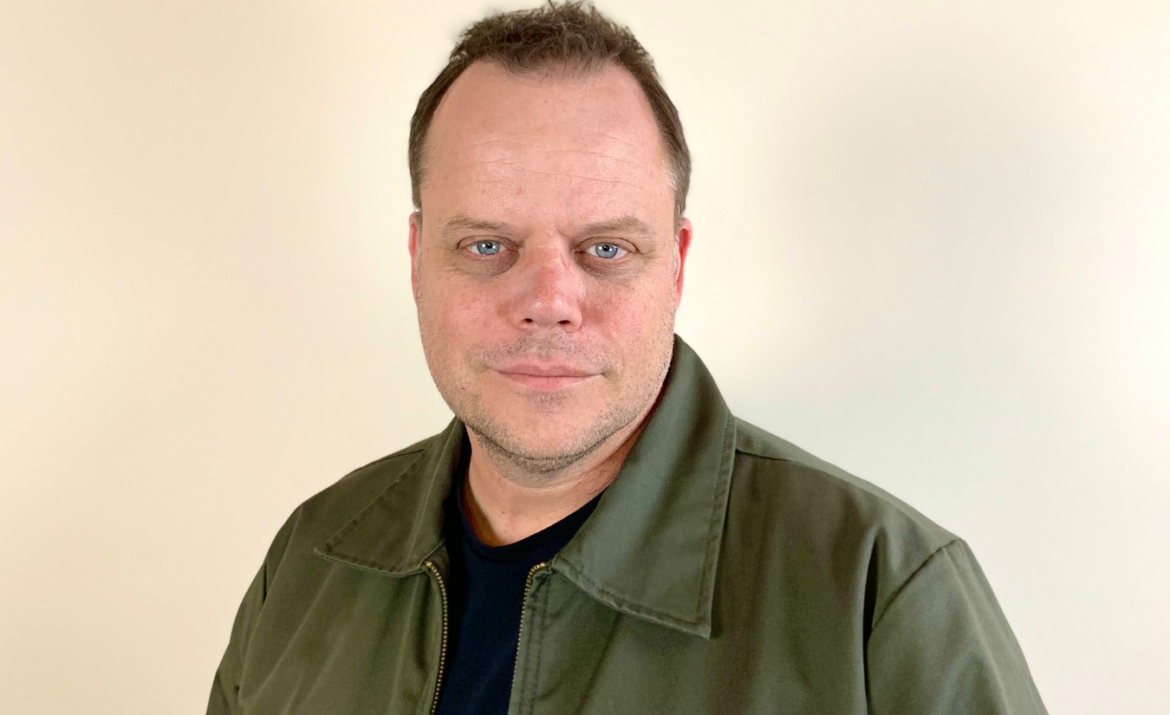Music and visuals have always gone hand-in-hand and someone who has had his fair share in the industry is Ryan Neill, PrimalHouse Music’s CEO. From falling into the industry straight after college to exploring every aspect of music supervision, Neill shares his experience, challenges and his thoughts on the future of music licensing.
How did you first become involved in music supervision, and what drew you to this field?
I kind of fell into it! Right out of college, I knew I wanted to work in music for TV and Film. I loved being in a recording studio, where music is created to support stories. The culture of that environment really clicked with me, and I knew that was something I could do for the rest of my career.
After college, I started working with Alan Ett, a composer and music entrepreneur who also worked with production music libraries and music licensing. He needed a music supervisor, so I was lucky to get the opportunity.
What role does music supervision play in the overall creative process for a film, TV show, or advertisement, and how do you approach finding the perfect track for a project?
A music supervisor plays a crucial role in shaping the musical identity of a film, TV show, or commercial. Our job is to manage all aspects of the project’s music, including selecting, licensing, and placing songs, while also ensuring that the music fits within the project’s budget and creative vision. We collaborate closely with the director, composer, music editor, and other production executives to ensure that the music aligns with the overall tone and goals of the project.
When it comes to finding the perfect track, I always start with understanding the project’s creative needs, but the budget and production schedule are key guiding factors. From there, we create a strategy for sourcing the right music – whether it’s from a production music library, licensing commercially recorded music, or custom compositions. The process is both creative and logistical, as I work to balance the artistic vision with practical constraints, ensuring that the music enhances the story and resonates with the audience.
What are some of the biggest challenges you face when working on a project, and how do you overcome them to ensure the right music is selected?
One of the biggest challenges is definitely working with tight deadlines that demand extra effort from everyone involved – sometimes leading to those long, all-nighter stretches. The longest stretch I’ve worked was a 36-hour marathon, which really tests your endurance and focus. It’s about having the fortitude to push through, even when it’s 4 a.m. and you’re feeling exhausted.
What helps me overcome these challenges is a deep understanding of the project’s emotional core and the music’s role in amplifying that.
What helps me overcome these challenges is a deep understanding of the project’s emotional core and the music’s role in amplifying that. While the pressure is high, the key is maintaining clarity in the vision and collaborating closely with the team to narrow down the best options quickly. At the end of the day, despite the exhaustion, the reward is always seeing how the right track can elevate a scene and make all the hard work worth it.
How has your approach to music supervision evolved over time and has stayed the same?
The evolution of technology has dramatically changed the way we discover and search for music. Early on, we had walls of CDs, and my job was to memorize the music across thousands of albums. I keep everything in my head, learning the strengths and weaknesses of various production music libraries, and identifying the standout tracks versus those to skip. I would often rely on remembering album covers to help with recalls. Clients would sit with me as we sifted through music together.
The evolution of technology has dramatically changed the way we discover and search for music.
Today, music searches are primarily conducted through advanced search engines and AI-driven tools, which have transformed the process.
However, what hasn’t changed is the ever present demand for great music. The power of music to elevate stories and evoke deep emotional responses remains constant.
With the rapid evolution of the music industry, especially in terms of licensing and streaming, how has music supervision adapted over the years?
Music supervision has had to adapt alongside the changes in licensing, streaming, and how audiences consume music. Licensing was once a more rigid and structured process, with distinctions between commercial music and production music. Today, with the explosion of streaming platforms, independent artists, and AI-driven music discovery, the landscape has become more complex but also more flexible.
With the explosion of streaming platforms, independent artists, and AI-driven music discovery, the landscape has become more complex but also more flexible.
One evolution has been in how music is sourced and licensed – not in the existence of production music libraries or commercial sync deals, but in the accessibility and scale. The demand for easily cleared, budget-friendly music has grown significantly, leading to an explosion of production music libraries and digital platforms that make licensing faster and more streamlined.
At the same time, independent artists have greater direct access to sync opportunities through streaming and online licensing platforms, making commercial music more accessible in ways that weren’t as immediate in past decades. While the industry has always licensed commercial songs, the negotiation process, rights management, and sheer volume of available music have all expanded dramatically.
Technology has also transformed how we search for and manage music. AI-driven search tools, metadata tagging, and automated rights management systems have made it easier to find the right track quickly. However, despite these advancements, the core role of a music supervisor remains the same: finding the perfect music to enhance a project while balancing creative and budgetary needs. Just as importantly, we ensure that every piece of music is legally compliant, protecting the project, client, and studio from potential rights issues. A great song is only valuable if it’s cleared properly and safe to use.
How have advances in technology affected the role of a music supervisor over the years?
Advances in technology have completely transformed how music supervisors discover, organize, and deliver music. In the past, we relied on physical media – as I mentioned earlier, I used to have a wall of CDs, and I memorized thousands of tracks. Now, search engines and AI-driven tools have replaced that process, making metadata accuracy more important than ever. A well-tagged track is easier to find, which means music supervisors must pay closer attention to how music is labeled and categorized.
Now, search engines and AI-driven tools have replaced that process, making metadata accuracy more important than ever.
Delivery methods have also evolved. We used to make cassette tapes and use DAT tapes to provide music to clients. Now, everything is digital – we share curated playlists instantly and send large music folders via FTP. These advancements have made the process more efficient, but they’ve also introduced new challenges, such as managing vast amounts of music and ensuring that metadata is consistently accurate across different platforms.
For someone just starting out in music supervision, what advice would you give to help them find success in this field?
Most people will tell you that to succeed in music supervision, you need to love all genres of music, work well under tight deadlines, be highly organized, and be reliable. While that’s all true, my best advice is to embrace networking, relationship-building, and sales.
You have to be comfortable putting yourself out there. You have to be strong enough to be ignored and determined enough to know that every “no” brings you one step closer to a “yes.” If you want a long-lasting career in music supervision, you have to embrace the business side of it – sales.
PrimalHouse Music has worked on a variety of projects—could you share a standout experience where music supervision truly made a significant impact on the final product?
I get asked this question a lot, and I always come back to the same experience. Years ago, I worked on a small, very low-budget independent film. Honestly, the first time I sat down to watch it, I couldn’t even finish. It just wasn’t good. But it was my job, so I pushed forward, focusing on the music.
With only our production music libraries available, I put in the time, gave my best effort, and collaborated closely with the music editor and director. In the end, was it a great film? No. But it was about 15% better than when I first watched it. The jokes landed better. The acting felt stronger. The music helped enhance the story in ways the visuals alone couldn’t.
The music helped enhance the story in ways the visuals alone couldn’t.
That experience taught me a valuable lesson – music has the power to elevate a project, even when struggling in other areas. It reinforced why music supervision matters and why I love doing this work. I’ve never forgotten that film, and it continues to remind me of the impact music can have.
PrimalHouse Music is the world’s fastest growing independent production music library and licensing company, currently representing over 250,000 tracks of pre-cleared music for use in every type of media. Classical to contemporary, their catalogs cover all styles and genres, offering high-quality, compelling sounds with new tracks added weekly.
All of which is powered by Synchtank, allowing PrimalHouse Music to have a robust and user-friendly search engine, end-to-end licensing services, meaning they can provide a flexible pricing model to their custom music offering. They have all the tools needed to unlock the power of music for your project thanks to Synchtank.

